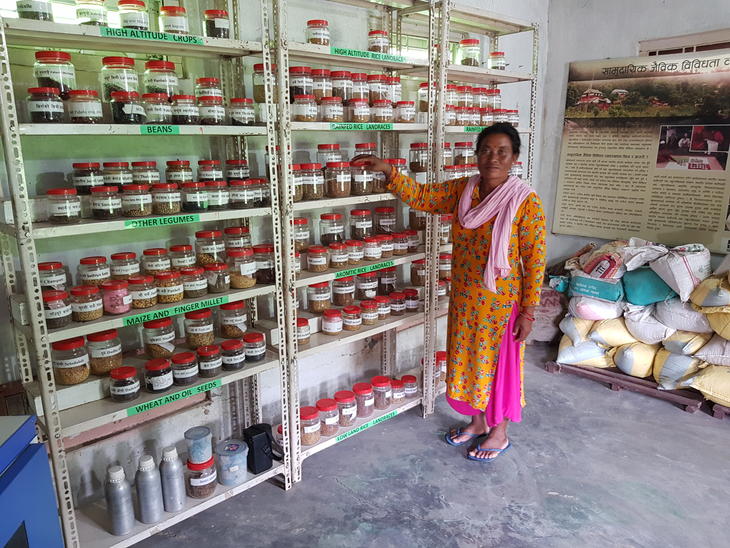
Option 6D
Support farmers’ seed systems and innovation.
In many countries, farmers’ seed systems are an important source of seed, and underly traditional practices of managing, conserving, developing and using crops and varieties. Along with the seed, knowledge may be exchanged among the farmers, thus encouraging local innovation.
Farmers’ seed systems may be supported through a variety of measures, including by studying their ways of functioning and their value for the conservation and sustainable use of PGRFA, by creating possibilities for farmers to continue saving, sharing, exchanging and/or selling seed on a legal basis, or by supporting farmers in accessing, testing and/or developing PGRFA based on their own knowledge and criteria, e.g., in farmer field schools or similar settings.
Women and men may rely on farmers’ seed systems in different ways, for different types of crops and varieties, or different purposes. Contracting Parties and stakeholders may thus want to carefully assess such differences to support farmers’ seed systems and innovation in an inclusive and gender-responsive manner.
Example(s) of possible measures:
- Facilitating small-scale farmers access to diverse seeds of traditional small grains varieties and landraces, and providing support to sustainable use and conservation of local small grains resources (Bulgaria, Serbia/Europe). Click here
- Improving small-scale farmers’, especially women’s, access to quality seeds through using the community managed seed security model (Uganda/Africa). Click here
- Sowing Diversity=Harvesting Security (SD=HS) Program (1/2) – Field Work (China, Laos, Nepal, Peru, Guatemala, Uganda, Zambia, Zimbabwe/Asia, Latin America and the Caribbean, Africa). Click here
- Community-based agrobiodiversity systems for the realisation of Farmers’ Rights (Ethiopia, Guatemala, Honduras, Malawi, Nepal, Nicaragua/Africa, Latin America and the Caribbean, Asia). Click here
- Putting farmers and Indigenous Peoples’ access to crop diversity at centre in seed policy and practice (Global). Click here